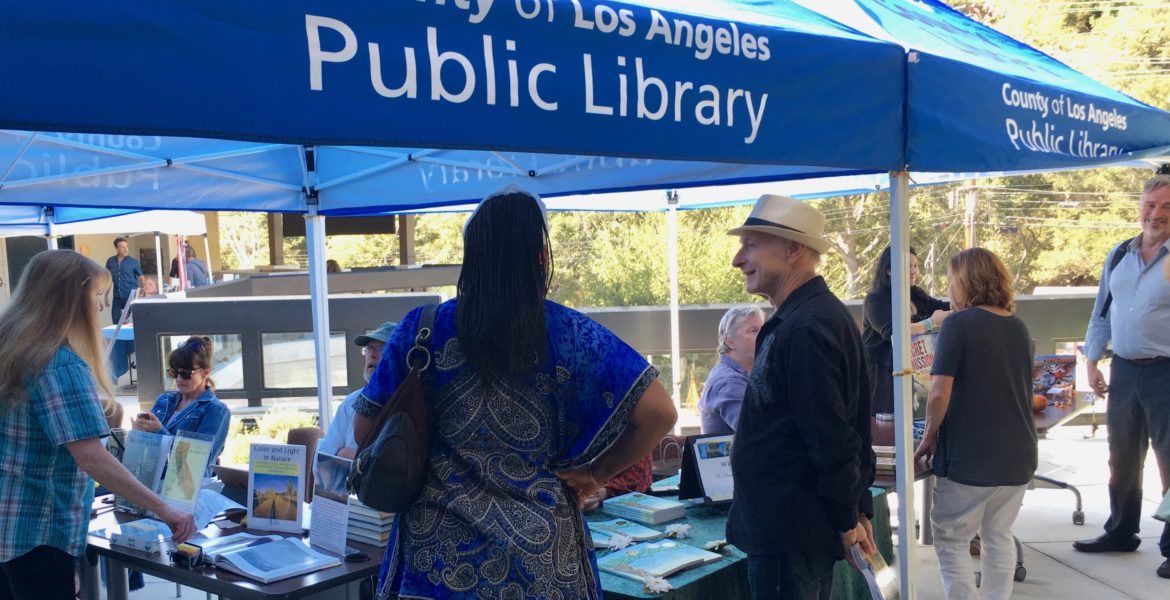Transport, Topanga’s literary festival, offered a weekend of events at the Topanga Library the weekend of September 23-24. Transport is organized by three members of the 6 (TAG): creativity researcher Kim Zanti, Topanga library manager Oleg Kagan, and Jenni Klemp of Friends of the Topanga Library that funds the event. TAG seeks to connect the creative people of Topanga to each other and the public, and Transport is a major component to that effect.
The speaking lineup was varied and impressive. Diana Mathur, author of the historical fiction series, “The Linden Tree & the Legionnaire” recited a 20-minute section of her upcoming installment from memory, dressed in the traditional Latvian garb in keeping with the books’ themes.
Brent Blair and Robin Lithgow presented Augusto Boal’s Theater of the Oppressed, a method of interactive performance that has been used to help solve issues of oppression worldwide. Blair, the head of Theatre & Social Change at USC’s School of Dramatic Art, worked directly with Boal until his passing in 2009.
A panel discussion titled “Disorder/Diagnosis—Illness as Impetus to Write” brought accomplished authors Julia Fierro, Lisa Desimini, and Lauren Polly together to investigate the subject of mental illness and creativity.
In addition to formal presentations, informal talks and workshops were held on topics including self-publishing, bookmaking, and web-focused writing. Children’s storytime and craft making were also offered.
Now in its second year, the festival stuck to its core goals, which, according to Zanti, include giving writers an opportunity to engage with an audience, and giving audience members, many of them writers as well, “a way to get behind the writing process.” TAG achieved this in a few ways: authors, some of whom were scheduled to speak, also had booths set up to invite conversation in the common area. Nearly all of the speakers’ presentations ended with question and answer periods, allowing for a participatory engagement between author and audience. A story board, the same one used last year, had been flipped to its other side, allowing festival goers to collaborate on a story together, with each participant writing a sentence or two. In the future, Zanti hopes these stories will be developed into performance pieces or short plays.
It is this kind of imaginative gumption that brought the festival into being. Zanti, Kagan, Klemp and others, over three years of TAG meetings, workshops, readings, and other events, developed the idea for the festival as an evolution of what they had been doing. They did so in an original and inclusive way by brainstorming concepts for the festival with multiple generations of Topangans who attended a series of TAG meetings where they wrote ideas on post-it notes and synthesized them into what would become the Transport Literary Festival. According to Zanti, the name was chosen because of its agency and metaphorical nature.
Echoing the festival’s motto, she said, “Transport represents what stories do to us all.”
By Aidan Freeman


